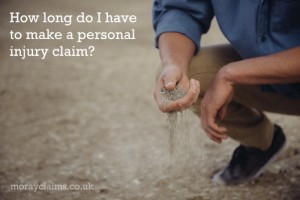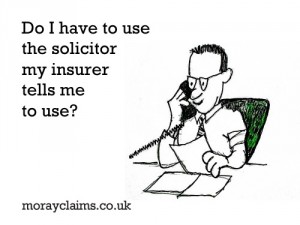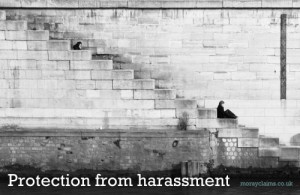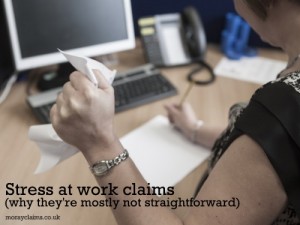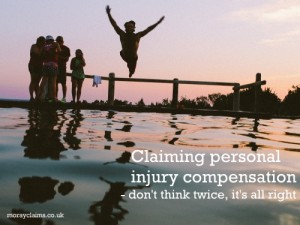I recently had to travel to a family funeral in Germany with my wife. We flew with KLM from Aberdeen to Cologne via Amsterdam. On the way there, we had one hour in Amsterdam Airport to catch our connecting flight. From previous experience, we knew this might be a problem. Schiphol is a sprawling airport. It is designed as a central hub with “spokes” going off from the centre and, on each spoke, there are up to 30 Gates. Gates with low numbers are close to the central hub and Gates with higher numbers are further out. On arrival at Amsterdam, we were on time. The aircraft’s parking stance was at Gate C18 and we understood we had to get to Gate D4. “C” and “D” are two different spokes, so we would have to get from one Gate to the other via the hub. When we checked the departure boards, we found that the departure Gate had been changed to D28. Travelator walkways on the spokes help to speed you on your way but, at the hub, we had to go through Security again and there Continue Reading
Pedestrian RTA Claim from Aberdeenshire Illustrates Difficulty of Contributory Negligence
The other day, I got an enquiry from a potential client about a tenancy deposit dispute. Having heard the details, I told him I didn’t think there would be any basis for making a claim. He wanted to continue to discuss the matter, so I had to tell him that I was not going to change my mind and, if he did not accept my advice, he should consider getting a second opinion from another solicitor. At that point, he told me that he had already spoken to several other firms of solicitors in Elgin about the same issue. So, I asked him what advice they had given him. He said: “The same advice that you have given me about it.” I smiled wryly as he said that and the call ended amicably. I had mixed feelings about it. Of course, I would like to feel that possible clients are coming to me with their enquiries as their “first choice” solicitor - which was clearly not the case here. More strongly, though, it struck me as ironic that several solicitors had all apparently Continue Reading
Making A Claim For A Motorcycle Accident in Moray
You get an amazing feeling of freedom when you ride a motorcycle. You have the opportunity to enjoy the freshness and beauty of the countryside without being cooped up in a car. We are lucky to live in such a beautiful part of the world as Moray and come the Spring, and more reliable road conditions, motorcyclists are to be found everywhere from the A96 to the smallest back road. Along with the pleasure of motorcycle riding, however, comes the risk of an accident. The most recent statistics show an increase in accidents involving more vulnerable vehicles, such as bicycles and motorcycles, which is a concern. If you have an accident while out on your motorcycle and suffer injury, how do you go about making a claim? Personal injury damages The most important claim is for compensation for your injuries. Motorcyclists are very exposed if there is any sort of collision and, as a result, injuries tend to be multiple, severe and, often, life-changing. We have experience Continue Reading
Slip / Trip Accidents And Why The Location Matters
If you have ever fallen over, you’ll know that embarrassment is often the overwhelming feeling, at first. After a trip or slip in a public place - such as a busy supermarket, shopping centre or street – we will tend to pick ourselves up quickly and make as fast an exit as possible, even if we are hobbling on our way. An accident of this type may be a pure accident – no one’s fault but your own – such as a trip while you are walking and updating your Facebook status at the same time. Even a momentary distraction can be enough to cause a fall. On the other hand, if your fall is due to someone else’s negligence (such as the occupier of land or a local authority), you may be able to make a claim for compensation for personal injury. This article considers slip / trip accidents and why the location matters when applying the law to the circumstances and deciding whether any personal injury claim is likely to succeed. Common accident claim locations For there to be the Continue Reading
Should I Settle My Accident Injury Claim Directly With The Insurance Company?
If you have been hurt as the result of an accident, it is likely that the third party’s insurance company will contact you directly. You will probably have exchanged personal details with the other party to the accident and that information will be passed on to the other insurers if the accident is reported to them by their customer. Insurers have recognised this as a great opportunity to “get in first”. Where the insurance company for the other party sees that the accident is likely to be the fault of their insured, if they move swiftly, they can get to you before you are in touch with your own insurers. The “prize” as far as they are concerned is the chance to offer money to settle any personal injury claim you might have - before you have had time to get proper legal advice and intimate the claim. Third party capture There are different terms for this procedure, depending on your point of view. Solicitors who represent the interests of injury victims refer to it as Continue Reading
Patients Need Honesty about Medical Errors
The Scottish Government is consulting on imposing a “duty of candour” for healthcare providers. In its response to the consultation, the Association of Personal Injury Lawyers (APIL), a not-for-profit organisation which campaigns for the rights of injured people, has emphasised the need for medical and social care staff to be forthcoming and open about medical mistakes. Marie Morrison and Peter Brash of Grigor & Young / Moray Claims are members of APIL and accredited as Senior Litigators by APIL. Grigor & Young’s Elgin Office has corporate accreditation from APIL. An apology would often be enough The experience of most solicitors who deal with claims for medical negligence is that the majority of people who are injured as a result of a medical blunder simply want a clear explanation of what went wrong and what happened. The injured person wants to know that any lessons which could have been learned from the experience have been learned and will be put into practice for the Continue Reading
Do I Have To Use The Solicitor My Insurer Tells Me To Use?
We have blogged previously about Legal Expenses Insurance (LEI). If you have LEI and approach your insurer for cover under the policy to make, for example, a personal injury claim, you may find the insurance company saying that they have the right to appoint a solicitor of their choice to act for you. We often get asked the question: "Do I have to use the solicitor my insurer tells me to use?" The true position is that you do not have to go with their choice. Right to appoint own solicitor for proceedings It’s not entirely simple but under Regulations dating from 1990 (the Insurance Companies (Legal Expenses Insurance) Regulations) you have the right to select the solicitor who will be appointed in respect of any proceedings. Of course, the normal procedure with a claim is that your solicitor will intimate it by letter first of all and, in many cases, the claim can be negotiated to a successful conclusion without the need for a court action – in other words, without the Continue Reading
Protection From Harassment
During a 2009 dispute which arose between an English solicitor and the firm which formerly employed him, through the content of a series of letters and court documents, the firm attacked the solicitor in several ways. The allegations included: "serious conflict and conduct issues on your part ...” “you have intentionally taken instructions in this matter … because of your personal vendetta with the firm ... “ “you have been poaching and inciting clients of the firm belonging to a particular community to initiate malicious complaints before third parties." So, the issues raised included his professionalism, motives and honesty. Separately, they even questioned his marital status, accusing him of bigamy. Everyone makes mistakes but … As a solicitor, it is unpleasant when another solicitor criticises you for some reason. We all make mistakes from time to time. In a different league, however, is criticism which questions your integrity or character. Having said Continue Reading
Testimonial – DM Elgin
"I was driving on the A96 near Elgin and waiting to turn right into a side road. I was struck from behind by another car which was travelling in the same direction as me and failed to see my stationary vehicle. The speed of impact was probably about 50mph. My car was shunted forward for several metres. I suffered a whiplash injury. My main concern was what the costs would be in pursuing such a claim. After I spoke to you, I was reassured. I got a clear explanation of the process and the potential costs. It was very helpful to me being able to carry out nearly all matters by email after the initial face to face meeting. Other benefits of your service included: the fact that you are local to me; it was a personal service – I dealt with Peter Brash throughout the claim; and the fact I was constantly updated as the process evolved." DM, Elgin, Moray Continue Reading
Stress At Work Claims (Why They’re Mostly Not Straightforward)
Imagine you’re in a job where you’ve had to work long hours under high pressure over a couple of years and without any sign of change. You’ve complained to your superiors about the increasing workload, both in person and via email. You’ve requested an immediate increase in staffing levels. You’re swamped with work but no help arrives. Your health deteriorates to the point where you suffer a nervous breakdown because of the pressure. You are off work for several months. Before you go back to work, you have a meeting with your superiors about the causes of your ill-health – the main one being your workload. They reassure you by offering you help with your work from a fellow employee. On your return to work, you find that only a few of your files have been covered by co-workers in your absence. The paperwork has been allowed to build-up. Worse, the colleague allocated to help you is moved to other duties within a month of your restart. The workload continues to increase. It’s an Continue Reading
Claiming Personal Injury Compensation – Don’t Think Twice, It’s All Right
There are so many factors to discourage you from making a personal injury claim these days. The Westminster Government almost seem to be trying to outlaw claims for whiplash injury and there is a constant undercurrent of suggestion that such claimants are fraudsters or at least exaggerating their symptoms. So, if you are thinking of claiming personal injury compensation following an accident, should you do so? An unattractive “entitlement” mentality Most of us find it difficult to warm to people who claim entitlement to positions or privileges just because of who they are or what they may claim to have done in the past. But legal entitlements are different Fair enough, the legal entitlement to personal injury compensation, where the injury is caused by the negligence of another, is not a "deserving cause" in everyone's eyes. Usually, these doubters are folk who have never been in the position of an injury victim themselves. It is different when you are the victim. Personal injury Continue Reading
100 Moray Claims Blogs – A Round-Up
We launched the Moray Claims website in October 2012. This is the 100th blog article. So, as we reach the milestone of 100 Moray Claims blogs, what are the main themes which have evolved via the blog during the last 2 years? They ask, You answer I’ve looked to the “They ask, You answer” advice of Marcus Sheridan for guidance, even if most of the time it’s meant predicting rather than knowing what you might want to know about personal injury law. Moray Claims is a trading name of Grigor & Young and so we started off this blog describing Moray Claims as “Not just another accident claims company”. Probably a bit too cryptic as a headline. Belatedly, months later, I realised it might be a good idea to explain what is Moray Claims and the purpose of the blog. In the buzz-speak of the content marketing gurus online, I’ve tried to provide meaningful content, to a targeted audience (you folks in Moray and a bit beyond that) and be authentically helpful. Helping you in Continue Reading
